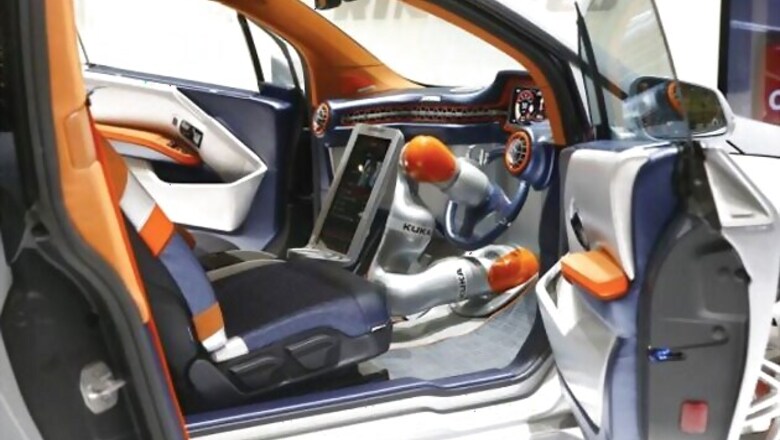
views
Detroit: Self-driving cars could generate billions of dollars a year in revenue from mobile internet services and products, even if occupants spend only a fraction of their free time on the web, according to a new study by McKinsey & Company.
The study, released Thursday, also projects that widespread adoption of self-driving cars could lead to a 90 per cent reduction in US vehicle crashes, with a potential savings of nearly $200 billion a year from significantly fewer injuries and deaths.
In addition, the McKinsey study warns of several risks to established companies, including vehicle manufacturers, dealers and even insurance companies.
McKinsey projects that future owners of self-driving cars could save up to 50 minutes a day, some of which is likely to be spent surfing the web.
The consulting firm estimates the additional free time in the car could generate about $5.6 billion a year in digital revenue for each additional minute that vehicle occupants spend on the internet - as much as $140 billion if half their free time in the car, or roughly 25 minutes, is devoted to daily web surfing and shopping.
The revenue may be divided among the vehicle manufacturers, their major hardware and software suppliers and web-based providers of goods, information and services.
In the future, "people will be able to shop for services or products from their mobile devices or from embedded systems in the vehicle," said Hans-Werner Kaas, senior partner and head of McKinsey's automotive practice.
McKinsey said that while traditional automakers, especially premium brands such as Daimler AG's Mercedes-Benz and Volkswagen AG's Audi, already are beginning to implement advanced driver assistance systems on their cars, they face new challenges in fielding fully autonomous cars from "attackers," non-traditional companies that do not have legacy vehicle platforms or sales and service networks.
Those outside challengers include such newcomers as Tesla Motors Inc, as well as tech giants such as Apple Inc and Google Inc, both of which are poised to build self-driving cars.
The gradual shift to self-driving cars, which may automakers don't expect to accelerate until after 2025, could trigger other profound changes in the auto industry.
Those include a shift among insurers from covering risk of human error to risk of technical failure; a shift from franchised dealer service to independent shops where autonomous vehicles can drive themselves for repairs and maintenance, and fewer trips to the shop as more cars are diagnosed and updated wirelessly.




















Comments
0 comment